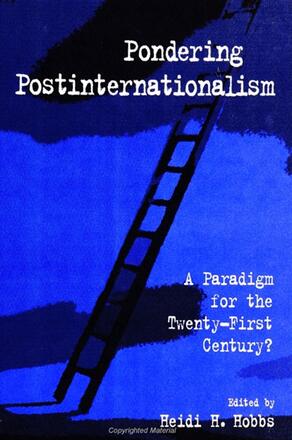
Pondering Postinternationalism
A Paradigm for the Twenty-First Century?
Alternative formats available from:
Notable scholars explore James Rosenau's postinternational paradigm--an alternative view to traditional international relations.
Description
Bringing together notable authors to explore James Rosenau's postinternational paradigm, this book makes an important contribution to the study of international relations theory. It includes a concluding chapter by Rosenau himself which responds individually and collectively to his critics.
Contributors include, Eric Drew Cooper, Ralph Dimuccio, Mary Durfee, Yale H. Ferguson, Heidi H. Hobbs, Ole R. Holsti, Margaret P. Karns, Joseph Lepgold, Ronnie D. Lipschutz, Richard W. Mansbach, Dario Moreno, Nicholas Onuf, V. Spike Peterson, and James N. Rosenau.
Heidi H. Hobbs is Visiting Assistant Professor of Political Science at North Carolina State University. She is the author of City Hall Goes Abroad: The Foreign Policy of Local Politics.
Reviews
"James Rosenau's work has had a major influence on many students of international relations; however, most of the previous work has focused on his foreign policy work. This book is an admirable response to his theoretical work, his Turbulence Period. Most of the chapters help to clarify Rosenau's more recent theoretical work: providing thoughtful explanations of key concepts, presenting real world illustrations of theoretical claims, and discussing the intellectual roots of these ideas. " — Steven Lamy, University of Southern California
"I am impressed by this book's diverse themes and foci pertinent to Rosenau's theory. They range nicely from Peterson's sharp feminist critique to Lepgold's elaboration and explication, and to Ferguson's more personal portrayal (of Rosenau himself). Most importantly, the book helps make Rosenau's theory more testable in an era in which grand theorizing in the social sciences seems to have lost much popularity and appeal. " — Xiangming Chen, University of Illinois at Chicago